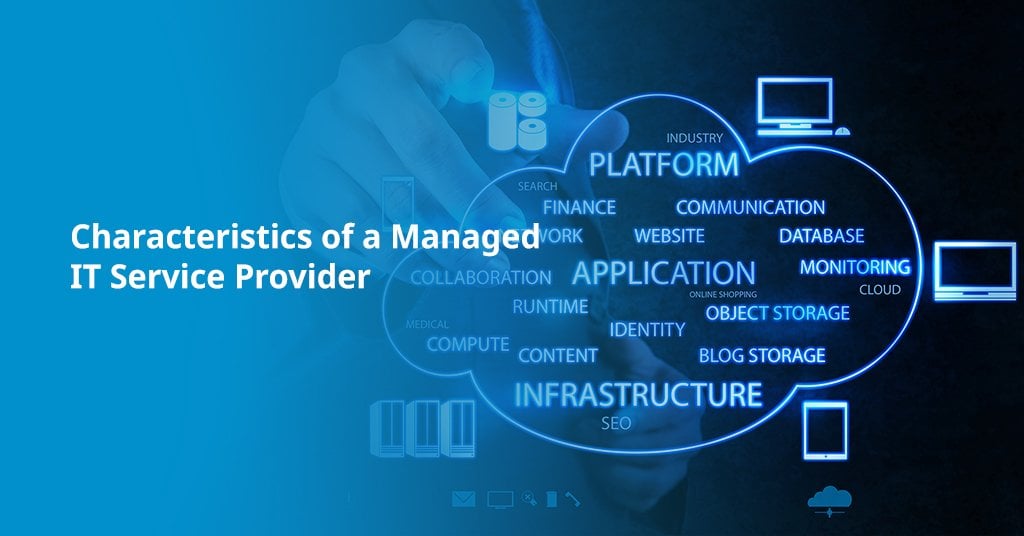Businesses that are well-supported in tech adaptation and aligned with current technology possess a more significant advantage in planning and executing growth goals. This is true for all businesses, regardless of their size or the industry they operate in.
Some challenges facing businesses when it comes to IT deployment include:
- Inability to choose the correct and most relevant IT solution.
- Lack of time to expend on the correct deployment, including research and actual deployment.
- Lack of access to the appropriate infrastructure to ensure trouble-free operations.
- Inadequate and inconsistency of upgrades.
- Insufficient data security arrangements and non-reliable backup arrangements.
Apart from those enumerated above, businesses face one more challenge that can derail successful IT deployment of any kind. Hiring trained resources is a cost-intensive exercise since it involves salary expenses and benefits such as health insurance. However, each of these challenges can be adequately resolved with the help of skilled IT expertise.
Selecting the right managed IT services provider
The support extended by the right managed IT services provider can help businesses plan and manage their growth better. For businesses, there are some characteristics that must be considered before selecting a managed IT services provider.
Robust support
Robust support and technical troubleshooting are a requirement of cloud deployment. Managed IT services providers must provide maximum helpdesk support, especially when 24×7 support may not be possible. In the case of disruptions, robust support from the managed IT services provider can help ensure the business does not suffer any loss in time or quality where customer deliverables are concerned.
Proactive approach
A proactive approach towards IT deployment involves simple software tools, hardware infrastructure, or end-to-end cloud deployment. This includes regular monitoring for operations and proactive monitoring and identification of threats, risks, and possible ways to mitigate them.
Regular upgrades
Selecting a managed IT services provider who can cover business requirements is essential. Upgrades are crucial to ensure infrastructure that is current and robust in terms of operations as well as security requirements. Managed IT services providers also cover upgrades to help ensure data security and drive operational efficiency. Their proven systems and processes ensure better data security protocols than in-house arrangements. This includes different security threats, including unauthorized access, spyware detection, neutralization, averting DDoS attacks, etc.
Reliable backup and data recovery
Reliable backup and data recovery options are necessary for both business data and data and information belonging to their clients. Managed IT service providers bring a higher level of reliability when compared to in-house because they have the necessary and relevant infrastructure. Depending on the kind of cloud chosen, such as Microsoft Azure, businesses can gain customizable data backup and recovery levels.
Clarity on costs and expenses
Businesses can control costs better when they harness professional assistance from managed IT service providers than in-house development. Managed IT service providers work with higher efficiency, in part due to their processes that are proven and come backed with higher adherence to regulatory requirements. This also allows businesses to extend higher quality deliverables to their clients while enabling additional services, where possible. All of these contribute to direct cost savings and indirect savings through increased quality, reduced errors, and fewer tasks needing complete rework. Some managed IT service providers also allow scalable work practices that would enable businesses to pay only for those services they have utilized. This also helps startups and businesses poised for growth because it will allow savings through projects that would have otherwise cost more than projections.
Comprehensive data protection
A measurable and direct advantage of managed IT services is the comprehensive data protection that businesses gain. Data protection strategies and policies, when executed well, can help companies to surge ahead in terms of quality and reliability afforded to their customers and clients. A comprehensive plan in terms of extensive data protection can include the following considerations:
- Creation of clear data protection policies
- Monitoring of security and performance
- Detecting and identifying threats
- Formulating clear response plans and execution in case of identification of threats and risks
- Adhering to compliance
- Ensuring licensing is updated or installed where missing
Businesses that are well-supported in tech adaptation and aligned with current technology possess a more significant advantage in planning and executing growth goals. This is true for all businesses, regardless of their size or the industry they operate in.
Some challenges facing businesses when it comes to IT deployment include:
- Inability to choose the correct and most relevant IT solution.
- Lack of time to expend on the correct deployment, including research and actual deployment.
- Lack of access to the appropriate infrastructure to ensure trouble-free operations.
- Inadequate and inconsistency of upgrades.
- Insufficient data security arrangements and non-reliable backup arrangements.
Apart from those enumerated above, businesses face one more challenge that can derail successful IT deployment of any kind. Hiring trained resources is a cost-intensive exercise since it involves salary expenses and benefits such as health insurance. However, each of these challenges can be adequately resolved with the help of skilled IT expertise.
Next Steps
- Learn more about the benefits of professionally-managed IT services and how we can help boost business profitability for you.
- Email us at sales@analytix.com or call us on 781.503.9003 today.
- Follow our blog for industry trends and the latest updates.
- Engage with us on LinkedIn and Twitter.
